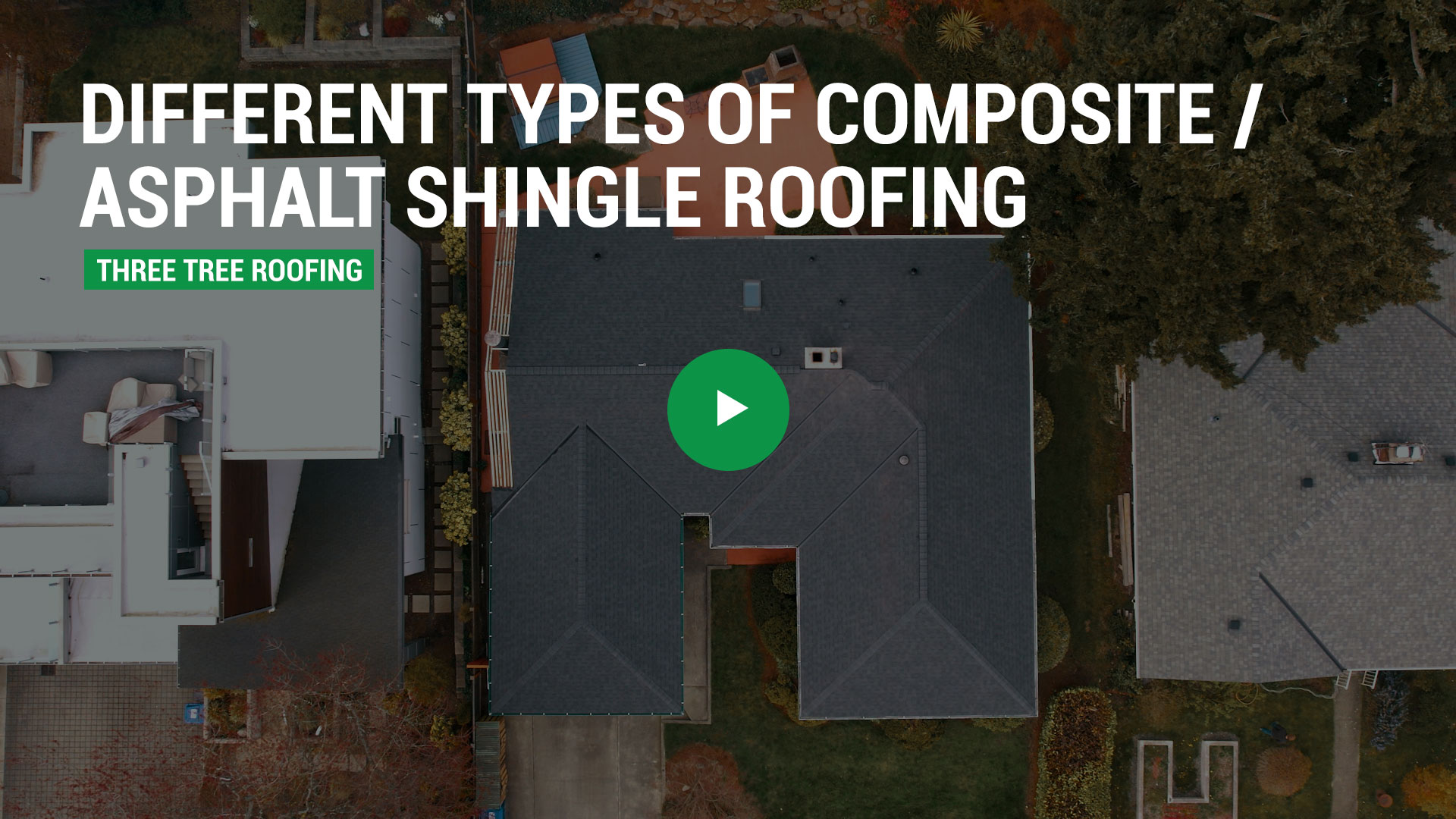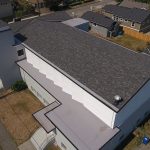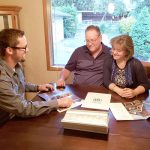Quick Answer to "Composite Roofing vs. Cedar Shake Shingle Roofing":
Composite roofing is made from asphalt, fiberglass, and ceramic granules. Cedar shake shingle roofing is made from wood. Cedar shake shingle roofing is more expensive.
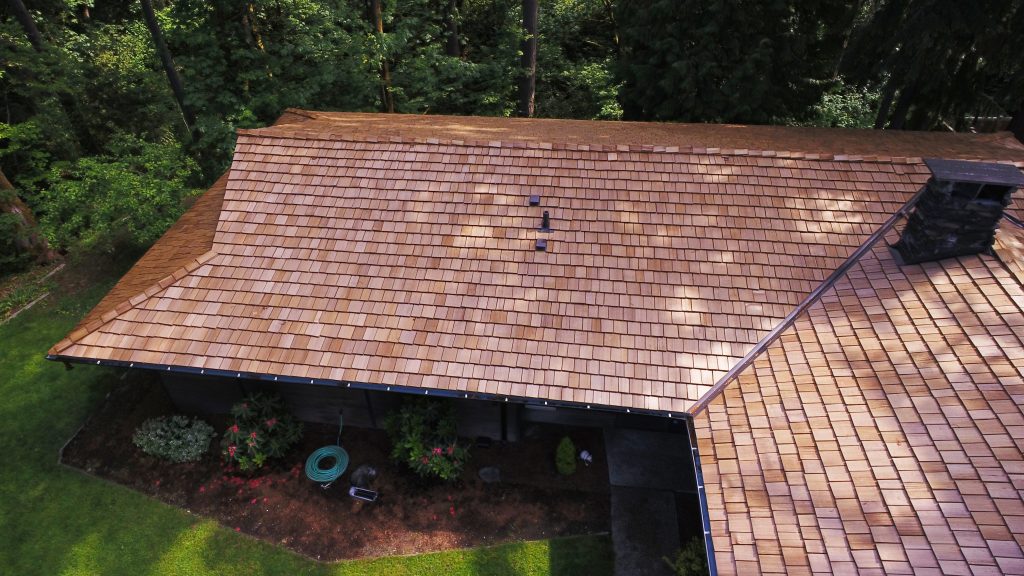
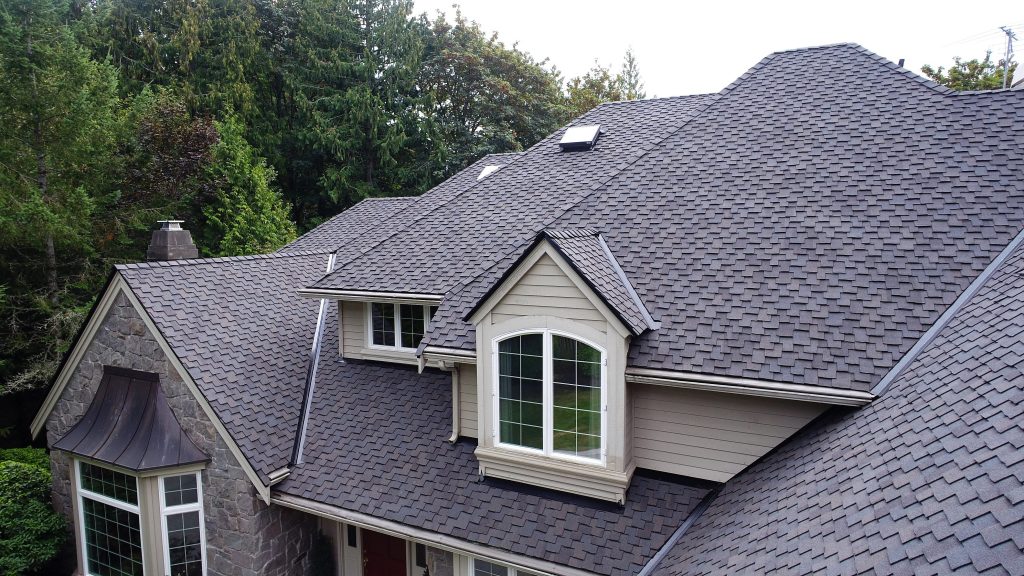
Extended Answer to "Composite Roofing vs. Cedar Shake Shingle Roofing":
Key Takeaways
- This article compares composite roofing and cedar shake shingles, focusing on factors that homeowners typically consider when selecting a roofing material.
- We provide insights into the composition, costs, aesthetics, durability, maintenance requirements, environmental impact, and lifespan of both roofing types.
Differences between Composite Roofing and Cedar Shake Shingle Roofing
The first difference between composite roofing and cedar shake shingle roofing is what they are made from. Composite roofing uses manufactured asphalt shingles made from asphalt, fiberglass, and ceramic granules. Meanwhile, Cedar Shake Shingle Roofing is made of wood.
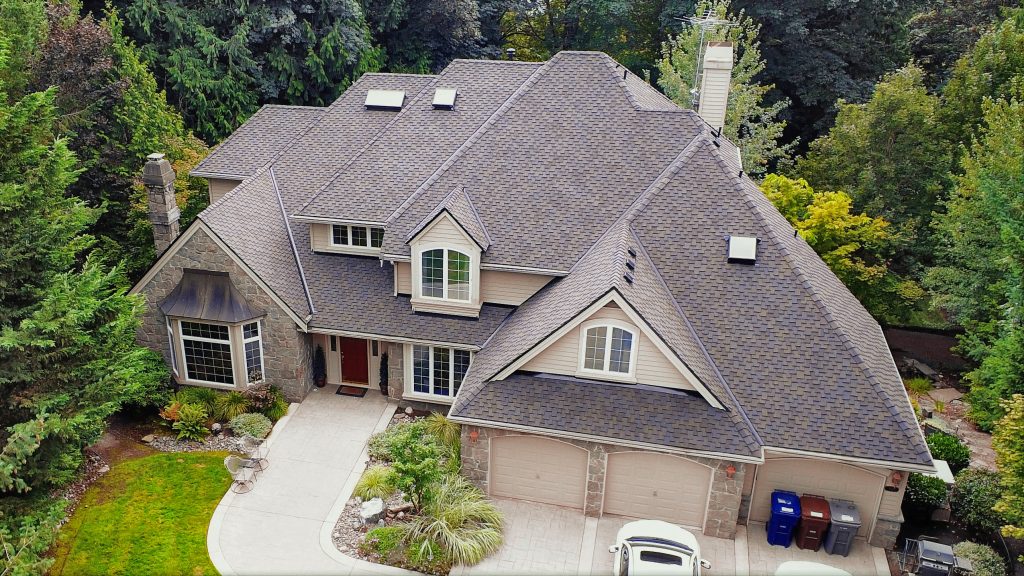
Because these two types of shingles are made of two completely different substances, the methods for installation are very different from one another. Composite Roofing Shingles are laid down on the roof and basically nailed into the sheathing and rafters. The installation for a Cedar Shake Shingle Roofing, on the other hand, is extremely laborious and therefore expensive. It is much more expensive than the installation of composite shingle roofing. Each shingle needs to be matched for color and look and then sized properly with a hatchet to fit into the available space for that individual shingle.
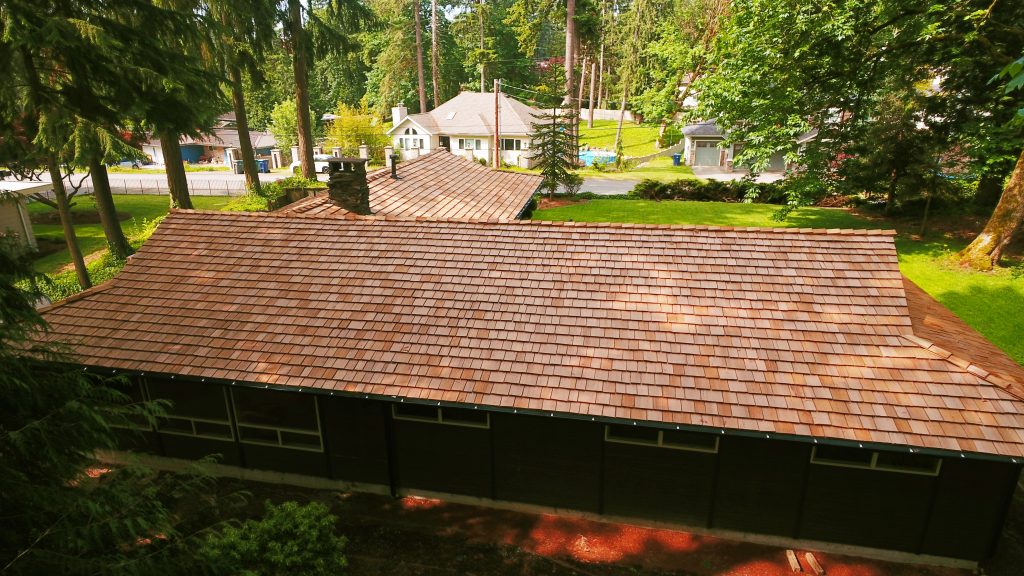
In addition to the installation methods, the base cost of cedar shake shingles is much higher than that of composite shingles. This drives the price up further for Cedar Shake Shingle Roofing. Cedar shake shingle roofing tends to last 30 to 50 years, depending on the thickness of the shingles and assuming high quality shingles are used and properly installed. Cedar shake shingles are available in 1/2 inch, 3/4 inch, and 7/8 inch thicknesses. The lifetime on 1/2 inch shingles is 30 years. The lifetime on 3/4 inch shingles is 40 years and, lastly the lifetime on 7/8 inch shingles is 50 years.
A properly installed cedar shake shingle roof... is a true work of art.
CJ McConaghy
Co-Owner and Co-Founder, Three Tree Roofing
Just like composite roofing, cedar shake shingle roofing is considered environmentally friendly. Since it is made of wood, the cedar shake shingles removed from old roofs can be recycled for a number of different uses including mulch, building materials for other homes, and more. Regardless of the cost, cedar shake shingle roofing has a unique, classic, and beautiful northwest look. A properly installed cedar shake shingle roof, installed by a dedicated cedar shake shingle roof specialist, is a true work of art.
| Category | Composite Roofing | Cedar Shake Shingles |
|---|---|---|
| Material Composition | Manufactured from asphalt, fiberglass, and ceramic granules. | Made from natural cedar wood, typically split or sawn into shakes. |
| Aesthetics | Designed to mimic natural materials with consistent color and shape. | Offers a rustic, natural look that weathers into a silvery-gray patina over time. |
| Cost | More cost-effective upfront compared to cedar. | Higher initial cost, with additional expenses for specialized installation and maintenance. |
| Lifespan | 30–50 years, depending on the quality of the product and installation. | Varies by thickness: 1/2 inch (~30 years), 3/4 inch (~40 years), 7/8 inch (~50 years). |
| Maintenance | Low-maintenance; does not rot, warp, or attract pests. | Requires regular upkeep to prevent mold, rot, pest infestation, and splitting. |
| Environmental Impact | Often made from recyclable materials and more eco-friendly than asphalt shingles. | Biodegradable and can be recycled into products like mulch or building materials. |
| Fire Resistance | Typically Class A fire-rated, making it highly fire-resistant. | Naturally flammable but can be treated with fire retardants to improve resistance. |
| Durability | Resistant to extreme weather, cracking, and impact damage. | Durable but vulnerable to moisture-related issues and can be prone to splitting. |
| Weight | Lightweight and easy to install on standard structures. | Moderate weight; heavier than composite but lighter than tile or slate roofing. |
Three Tree Roofing is Composite Roofing Manufacturer Certified
The best two manufacturers we have found are CertainTeed and Malarkey Roofing Products.
We have gone through extensive training with each manufacturer. This included comprehensive background checks and audits. Through these processes, we earned manufacturer certifications from our roofing material suppliers. In addition to the Three Tree Roofing Warranty, our customers receive a manufacturer backed warranty. This includes all of our workmanship. You are double covered by us and by the manufacturer!
Certified Roofer
We hope this article helps you better understand the differences between composite roofing and cedar shake shingle roofing. Click here to see our next post "How Much Does Composite Roofing Cost?" - Part 8 of our 8 Part series on "5 Different Types of Roofs: Composite Roofing".
